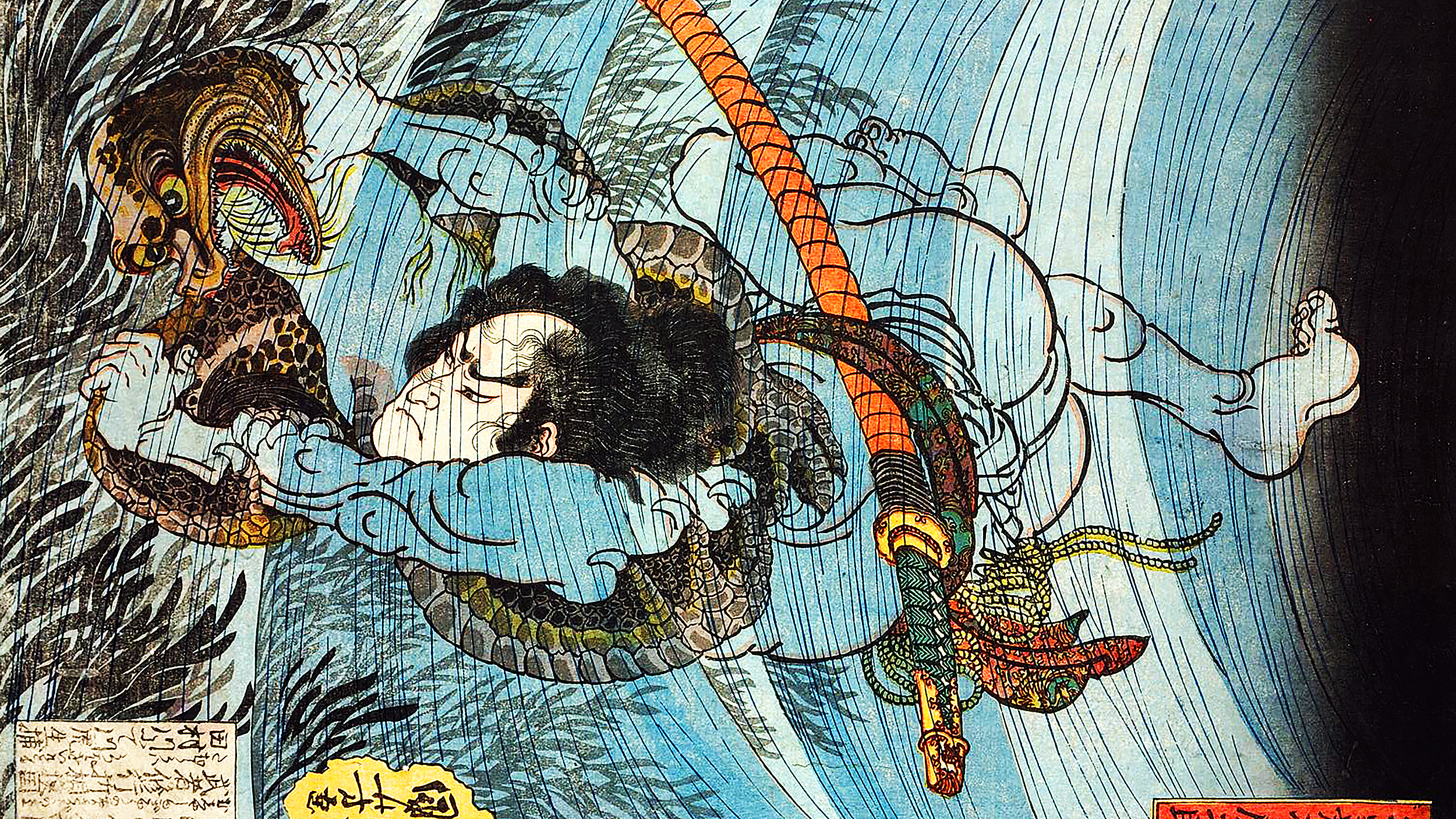How “WandaVision” goes beyond peak superhero stories

Credit: "WandaVision" by Marvel Studios
- I'm a comic book fan 50 years in the making but, over the last few years, even I have found myself with superhero fatigue.
- Then came "WandaVision". The writers have found a way to blunt our expectations about what should happen in this kind of genre.
- Formula fatigue isn't just a problem for the superhero genre. Creators of sci-fi, detective, romance, and buddy-comedies can recapture exhausted audiences by telling a story differently—or telling a different story.
Human beings are, more than anything else, storytellers. It has even been said that stories were humanity’s first technology. For most of our time here on Earth, the most important stories—a tribe’s myth of creation or an ancient city’s central Hero’s Journey narrative—were told only at special times like yearly feasts or celebrations. But in the modern era, our capacity for cultural storytelling has exploded through a thousand platform varieties: streaming video services, podcasts, cable TV, blogs, vlogs, and so on. Digital technology means we are now literally awash in so many stories that it seems every genre has been made and remade to the point of exhaustion.
It’s against that background that Marvel Studio’s latest streaming series “WandaVision” becomes something worth consideration. That’s because no modern genre has so saturated modern culture as the superhero.
You don’t need me to tell you how prevalent superheroes have become. The Marvel Studio franchise has been dominating the box office since its first Iron Man movies back in 2008. Before that, other studios had found gold with characters like Spiderman and the X-Men. For a long-time comic book (ahem… graphic novel) fan like me, this triumph was a vindication 50 years in the making. I reveled in those first movies, seeing the complex interplay of stories from the Marvel comic universe being brought to life with such joy, passion, and attention to detail. And I count the day director Scott Derrickson asked me to be the science advisor for Dr. Strange as the fourth greatest of my life (just after meeting my beloved wife and the birth of my two children).
But over the last few years, even I have found myself with superhero fatigue. It feels like I’ve watched so many versions of these stories (way beyond just Marvel) that the very idea of this kind of narrative has become exhausted. Most new shows appear to be rehashing the basic formula ad-infinitum. And this genre exhaustion is not just a superhero phenomenon. Sci-fi, detective, romance, buddy-comedies—with so many venues pumping out so many shows, so many stories, it feels like the possibility of doing anything surprising has become impossible.
Until it isn’t.
WandaVision | Official Trailer | Disney+www.youtube.com
Like many fans, I came away from the first few episodes of “WandaVision” feeling perplexed. For those who haven’t followed the Marvel Cinematic Universe (spoiler alerts!), Wanda Maximoff is a superhero (maybe) who was orphaned as a child during a civil war. Later, she lost her brother when they fought against, and then with, the Avengers. Wanda’s powers in the movies were basically hurling red energy bolts around and some mind-y-wimey stuff. In the final Avengers movies, her husband, another superhero named Vision, died twice (it’s complicated). One of these deaths was even at Wanda’s hands. So, Wanda has experienced a lot of loss.
The first few episodes of “WandaVision” don’t really touch any of this. Instead, each is a re-creation of a sitcom from a different era. Episode 1 is a classic “I Love Lucy” 1950s comedy. Episode 2 is straight out of “The Dick Van Dyke Show” or “Bewitched” of the 1960s. Episode 3 goes all “Brady Bunch” including the 1970s groovy architecture. As a fan expecting a superhero story that fit into, literally, hundreds of hours of already existing superhero stories (i.e., The Marvel Cinematic Universe) I was left scratching my head. After each one, I asked myself: “What is this? Where is this going?”
In retrospect, those questions were exactly the point.
The writers had found a way to blunt my expectations about what should happen in this kind of genre. They left me guessing in a way that was all the more interesting because the rendition of the old sitcoms was done with such love and attention, they felt like love letters to the history of TV (the music for each of these fake shows perfectly nailed the vibe of that era). In later episodes—more spoilers!—”WandaVision” would become more of a traditional superhero show, but not without also becoming a vehicle to explore grief and its toll on its super-powered central character. In fact, as Linda Holms at NPR has pointed out, the show missed an opportunity by not going even further in exploring this dark aspect of grief. Still, I came away from the show genuinely excited for the next step in Wanda’s story as her powers had grown dangerously beyond those red energy bolts.
In the end, it’s about the courage to tell a story differently or tell a different story.
So, in this era where digital technologies dominate every aspect of our storytelling, from their creation (including mind-boggling special effects) to their omnipresent distribution and availability, “WandaVision” demonstrates that there is still a place for art and novelty. In the end, it’s about the courage to tell a story differently or tell a different story. This extends to giving people who have been woefully underrepresented in our story-making industries the power to be the storyteller (think “Black Panther” or “Get Out“).
So, while we were born to spin tales of our lives and experience, recently it seems like new technologies and commercial interests have driven us into an endless flood of the familiar. What “WandaVision” demonstrates is that in spite of those pressures, there will always remain the possibility to find stories that can delight and surprise us.





